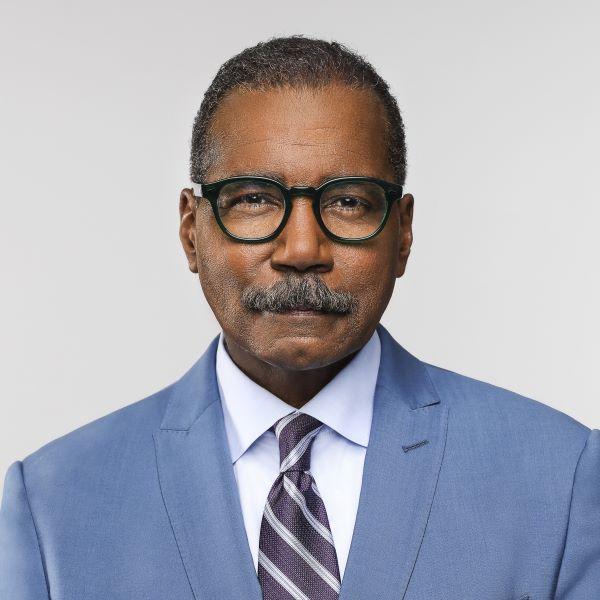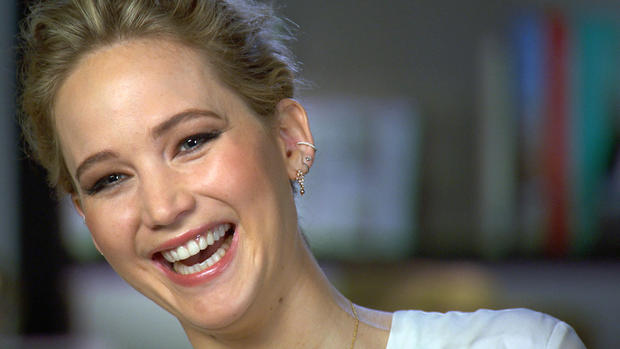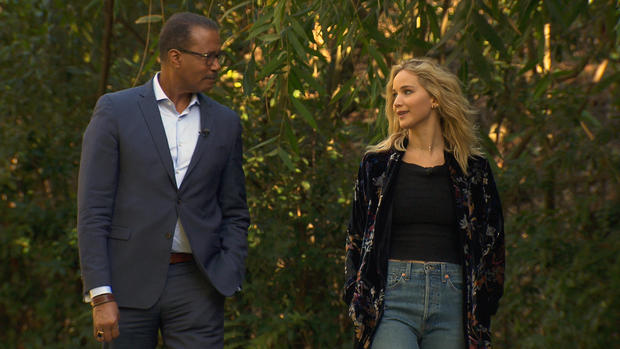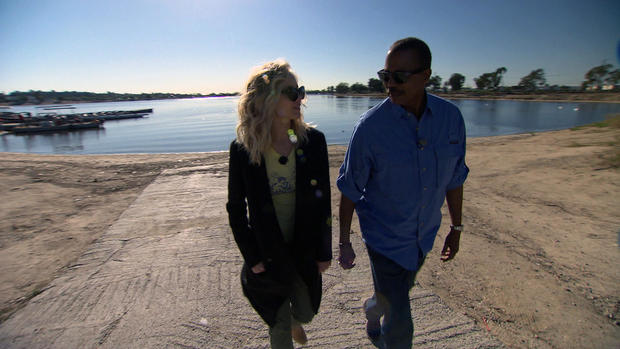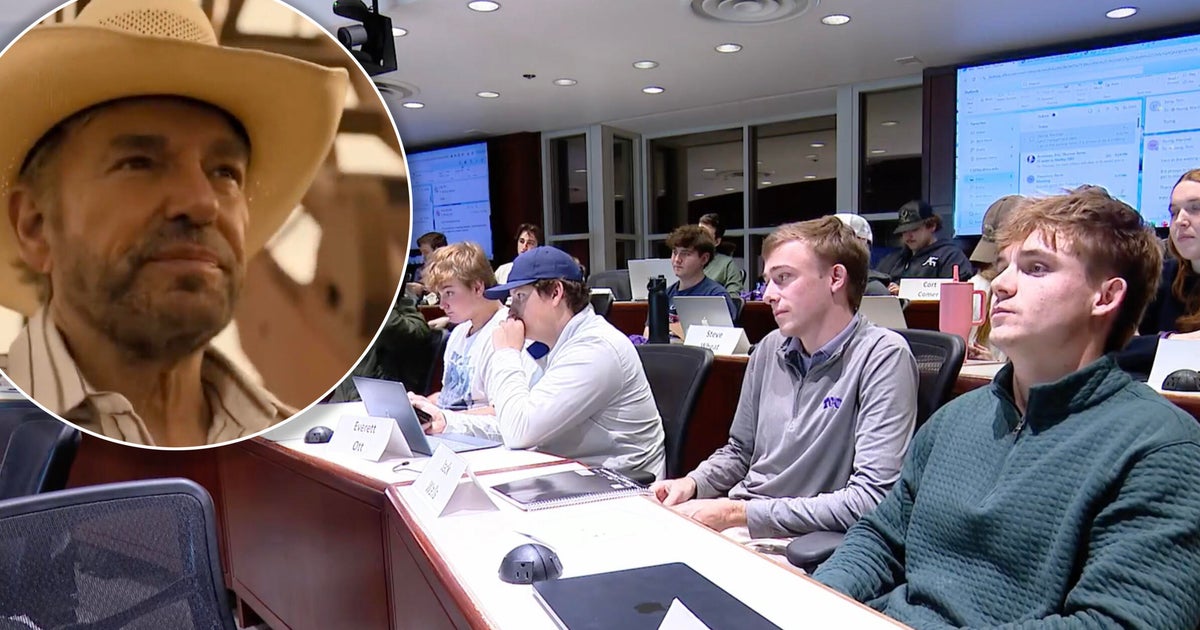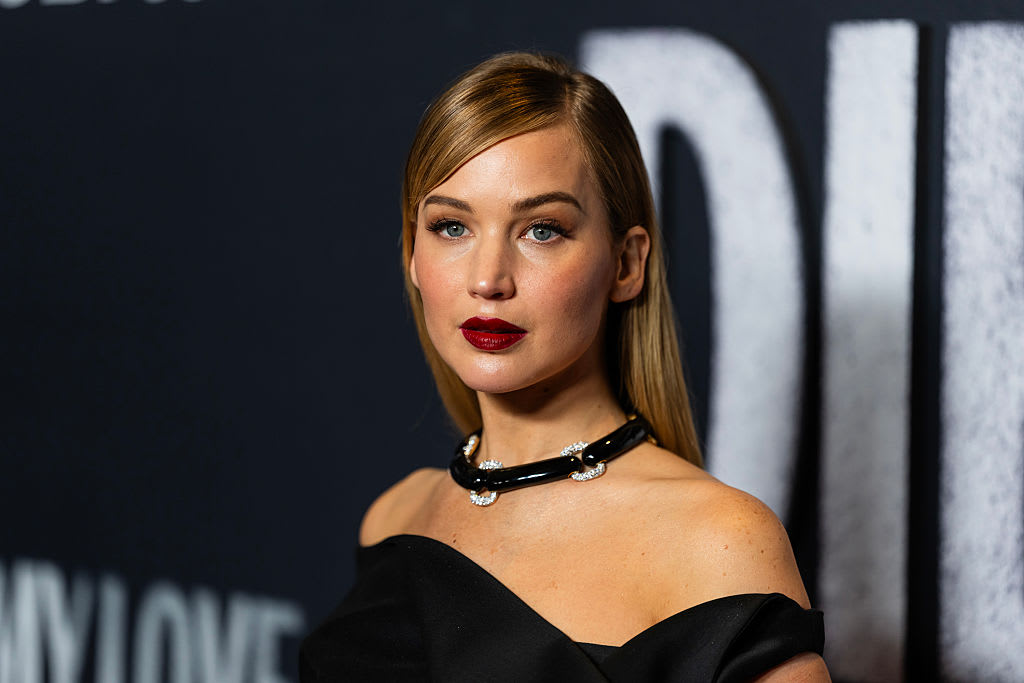Jennifer Lawrence's surprising trip to the top of Hollywood
Jennifer Lawrence is one of the most popular, highly paid actresses in Hollywood, one of the biggest movie stars in the world, and she's only 27. She's the youngest actor ever to be nominated for four Academy Awards - she won once for best actress. She can give dramatic performances, or romp through madcap comedies, a range that gets her compared to Katharine Hepburn and Meryl Streep. She took an unconventional path to Hollywood, a risky and surprising part of her story. We found a young woman with a fiercely independent spirit, living a life she could only have dreamed of growing up in Louisville, Kentucky.
Bill Whitaker: How did you get from Kentucky to the top of Hollywood?
Jennifer Lawrence: Desperation. An appetite. Confidence. And ambition.
Bill Whitaker: You really wanted this.
Jennifer Lawrence: I knew if I just was given the chance, that it would work. I just knew.
But not even she knew it would work so well. For a decade in Hollywood she has been defying odds and breaking barriers.
At 21 she shattered the myth that women can't carry an action franchise. Her four "Hunger Games" movies earned almost $3 billion.
She made three comedy-dramas in as many years playing unforgettable, flawed, resilient women: Tiffany, a young widow in "Silver Linings Playbook." In "American Hustle" she played Rosalyn, a looney, Long Island housewife. And in "Joy," she was a desperate mother turned entrepreneur.
She earned Academy Award nominations for all three movies and took home the best actress Oscar for "Silver Linings Playbook." But Jennifer Lawrence is not one to rest on her laurels.
Jennifer Lawrence: I am hard on myself.
Bill Whitaker: Why?
Jennifer Lawrence: I get paid-- a huge amount of money to be able to do what I love.
Bill Whitaker: So you're the one putting this pressure on you?
Jennifer Lawrence: Yes too many people sacrificed so that I could be here. My parents, you know-- changed their entire lives to support me. And I-- I worked too hard to get here to be stupid about it.
Lawrence's father owned a construction company, her mother ran a summer camp. She told us her two older brothers pretty much ignored their annoying little sister.
Bill Whitaker: Did you used to play act when you were growing up?
Jennifer Lawrence: Oh, yes. I was-- constantly performing. We just didn't know that meant I was an actor. I just thought, you know, I was a weirdo.
Bill Whitaker: But I understand that you pretended to have a problem with your leg at school?
Jennifer Lawrence: Who told you that?
Bill Whitaker: We've got our sources.
Jennifer Lawrence: In school. I told everybody I had a wooden leg. And I, like, walked in a very consistent limp. Like, incredibly consistent. And when my mom came to get me from school, my teachers were, like, "It's awful what happened to Jennifer's leg." And my mom was, like, " She does not have-- she's-- her leg has not been amputated." I used to just invent stories just to invent them.
She used zany antics to hide the fact she was a poor student, hyperactive, didn't fit in. She could drive her parents crazy.
Jennifer Lawrence: My parents were just-- you know, they would go through periods of time where they just wanted me outta the house. And it was called a lockout. And so I'd go to the door and it was locked. And I'd be like all right. I gotta find something else to do until my parents were ready to deal with me again.
Bill Whitaker: But you were a handful?
Jennifer Lawrence: I was a handful. And I got it. We never fought about it. I've always been very self-aware about my annoyingness.
She told us she felt lost in school and dreamed of becoming an actor. At 14, she badgered her parents to visit New York, where improbably, she was discovered by a modeling scout, then given some scripts to read.
Jennifer Lawrence: I struggled through school. I never felt very smart. And when I'm reading this script and I feel like I know exactly what it would look like if somebody felt that way. That was a whole part of my brain that I didn't even know existed. Something that I could be confident in. And I didn't wanna let it go.
Bill Whitaker: What was it you wanted so much?
Jennifer Lawrence: It's so hard to explain it was just an overwhelming feeling of, "I get this. This is what I was meant to do." And to get people to try to understand that when you're 14 years old. Wanting to drop out of school and do this and your parents are just, like, "You're out of your mind."
Bill Whitaker: Did you finish up high school?
Jennifer Lawrence: I dropped out of middle school I don't technically have a GED or a diploma. I am self-educated.
Bill Whitaker: Do you regret that?
Jennifer Lawrence: No. I really don't. I wanted to forge my own path. I found what I wanted to do and I didn't want anything getting in the way of it. and even friends for many years were not as important to me as my career. I mean, from the age of 14.
That stubborn determination landed her a role in a sitcom. When her parents saw her happy and focused for the first time they agreed to accompany her to Hollywood. She never went back to school.
At 18 she wrangled the lead in a small, bleak independent film called "Winter's Bone."
It was a breakout performance that earned her first Oscar nomination.
Bill Whitaker: There's not a lot of dialogue But yet your presence fills the screen.
Jennifer Lawrence: It was really just feeling, believing, you know, in this situation. Look at it through her eyes. And then that's always gonna come across in your eyes, in your face, in your-- in your body language.
Bill Whitaker: That empathy. You can channel that into acting.
Jennifer Lawrence: Yeah. I mean, that's how I act. That's really my only tool, I think.
Bill Whitaker: No acting training?
Jennifer Lawrence: No.
Bill Whitaker: It's just empathy?
Jennifer Lawrence: Yes.
Bill Whitaker: Is that difficult or easy for you to do?
Jennifer Lawrence: It's easy.
Bill Whitaker: To just let go of Jennifer Lawrence--
Jennifer Lawrence: Yeah, because--that's when you get the high. that's what I crave that really getting lost into something being almost possessed by another emotion. That's the adrenaline rush, that's the high that I can't live without.
In her new movie, "Red Sparrow," Lawrence stars as a Russian ballerina, coerced into being a spy. It calls for nudity, something she thought she'd never do after she was traumatized when her most private pictures were hacked in 2014 and spread across the internet.
Bill Whitaker: You told us that you didn't like doing movies with a lot of sex in it. But "Red Sparrow" is all about sex. Why'd you change your mind?
Jennifer Lawrence: I read this script that I'm dying to do And the one thing that's getting in my way is nudity. And I realized there's a difference between consent and not. And I showed up for the first day and I did it. And I felt empowered. I feel like something that was taken from me I got back and am using in my art
Bill Whitaker: And that hacking incident, did it just vaporize?
Jennifer Lawrence: It didn't vaporize. But I did feel like I took the power out of-- out of having my-- my body taken from me. I felt like I-- I took it back and I could, and I-- and I could almost own it again.
Bill Whitaker: Are you worried that audiences won't see it the way you see it?
Jennifer Lawrence: I was, but it doesn't matter. It's my body and it's my art and it's my choice. And if you don't like boobs, you should not go see "Red Sparrow."
After making two movies a year since the age of 20, Lawrence is taking some time off.
Jennifer Lawrence: Ah-ha. Hi-ho silver.
She wanted to go fishing, something she's always found relaxing, so we found a trout lake in Anaheim.
Bill Whitaker: Haha…
Here, away from paparazzi and the pressures of celebrity, we found her playful and fully aware she's a 27-year-old in a high wire act with the whole world watching.
Bill Whitaker: It's problematic for you to go out into the public?
Jennifer Lawrence: I just have to, like, prepare a little bit it's always the one day that you look like crap that a paparazzi just jumps out from behind a car and you're like, "Oh, I looked so cute yesterday."
Bill Whitaker: Does the fame sort of lock you in?
Jennifer Lawrence: It does, but, like, my favorite activity is sitting by the fire, drinking wine with my girlfriends. That's why you're coming.
She invited us over to meet her three closest friends: Laura, Justine, and Lauren, they've known her since long before she became a movie star and she says they keep her sane.
Bill Whitaker: So you're, like, her rock, her foundation?
Justine Ciarrocchi: We are her security guards.
Jennifer Lawrence: They're-- they're much more security.
Laura Simpson: Yeah, emotional security guards.
Jennifer Lawrence: Yeah.
They tease her.
Laura Simpson: No, she cannot dance.
Lauren Wells: I told her-- I told her the other day. I'm like, "You know your classic dance move." she got so mad. And she said, "I don't do that." (LAUGH)
Jennifer Lawrence: I don't dance like that.
Lauren Wells: And then she goes, "Wait a second."
Jennifer Lawrence: "This feels like home."
When Jennifer left the room, her friends conspired.
Justine Ciarrocchi: Ooh should I bring him the self-portrait?
It was a masterpiece she'd painted at 16, a self-portrait.
Jennifer Lawrence: No. No. Oh my god. No.
Bill Whitaker: What is it?
Laura Simpson: Oh my God.
Jennifer Lawrence: I did not know it was gonna go that far. I mean, that was-- that was really bold.
Bill Whitaker: You literally jumped over me to get to this picture--
Jennifer Lawrence: Sorry about that. God, talking about laughing therapy.
Bill Whitaker: That seems to be kinda central to who you are.
Jennifer Lawrence: Laughing?
Bill Whitaker: The laughing and the fun and--
Jennifer Lawrence: Oh gotta have it.
Bill Whitaker: You gotta have it.
Jennifer Lawrence: I gotta have it.
It's her defense against the brutal, cut throat side of show business, which has been on conspicuous display recently with shocking allegations of sexual harassment and assault. Lawrence has added her voice to the times up movement.
And spoke to us about Harvey Weinstein. He produced her Oscar-winning movie, "Silver Linings Playbook."
Bill Whitaker: Was he ever inappropriate?
Jennifer Lawrence: No, he was never inappropriate with me. But what he did is criminal and deplorable. And when it came out and I heard about it, I wanted to kill him. The way that he destroyed so many women's lives. I want to see him in jail.
She was one of the first to speak out publicly about pay inequity in Hollywood. When it got out three years ago that her male co-stars in "American Hustle" had been paid more than she had, Lawrence wrote an essay, blaming herself.
Bill Whitaker: Why not blame the studio? They're the ones who didn't pay you.
Jennifer Lawrence: Because I didn't fight hard enough. It was my own mentality that led me to believe that I didn't deserve to be paid equally.
Bill Whitaker: Would you do that again?
Jennifer Lawrence: No.
Bill Whitaker: You feel you know your worth now?
Jennifer Lawrence: I feel I know my worth, and I feel like I work to keep it that way.
Bill Whitaker: Does that translate into money and power?
Jennifer Lawrence: Yeah. I can work with directors who I've admired for a very long time and get a screenplay written. I have an amazing career, Bill.
Bill Whitaker: But you do.
Jennifer Lawrence: There's a lot of risk too. This is right now. This, it's all very temporary. Hollywood is very fickle.
Bill Whitaker: What are you -- you're like the flavor of the month?
Jennifer Lawrence: Yeah, I could be. If the next few movies don't-- don't do well in the box office, I won't-- I won't-- I won't get paid the same. That's the way it works. If you can't prove that you-- that you deserve that number, then you're not gonna get it. So it's very fickle. So I don't want to sound like I'm on a high horse, 'cause I might be on a tiny little Shetland pony in a month.
Produced by Ruth Streeter and Kaylee Tully.
